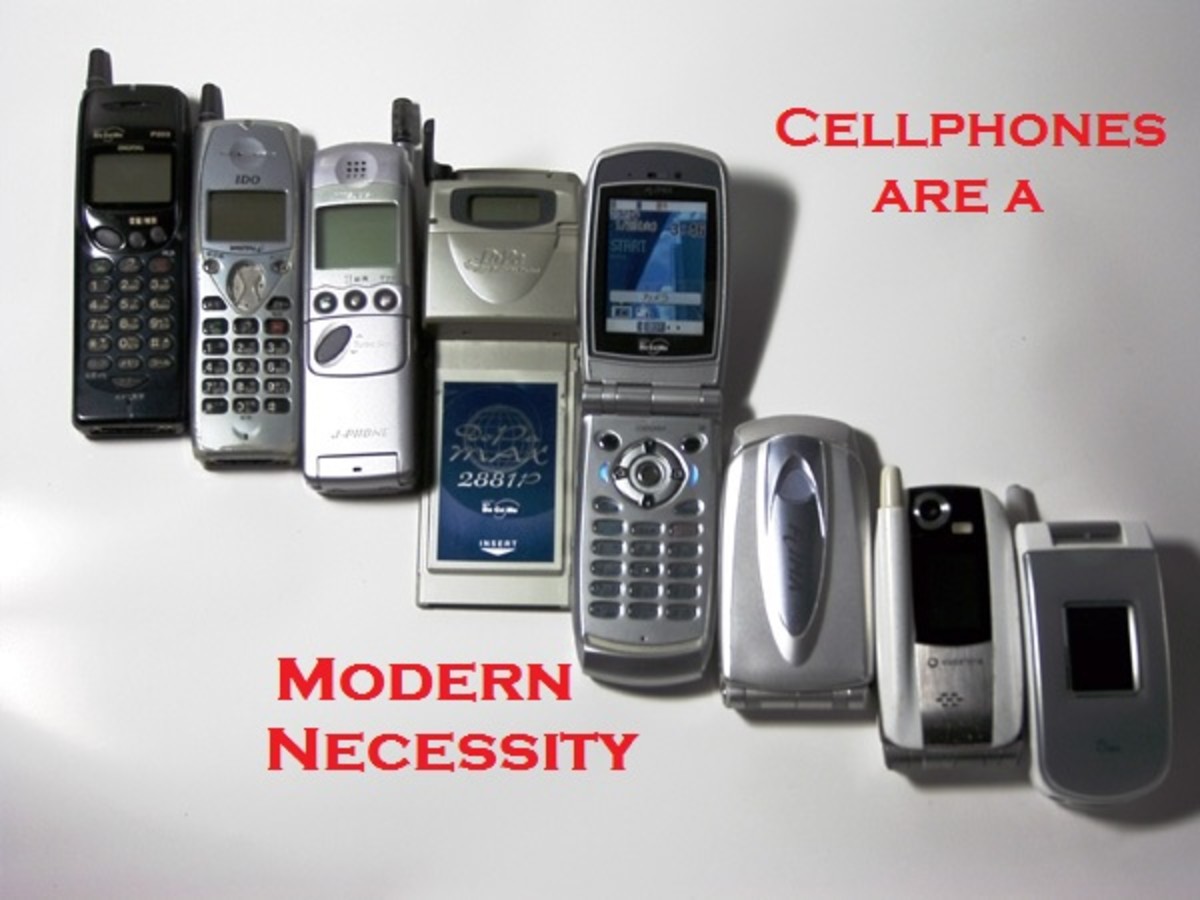The Internet and Youth
The Internet and Youth, Where is it Going?
I’m in a local mall in my small town, USA, and as I look around at the young people that are so prevalent here because we live in a college town, and everywhere I look, I see cell phones and iPods. Teens and young adults don’t really talk to the ones they are with; they all have a phone up to their ears or are texting, in their own little world. They are laughing and carrying on, not to the person they are with, but to the one on the phone, although it doesn’t seem to matter, the person by their side is doing the same. Our world and its technology is changing and so are our youth, it may be for the better or for the worse, but I think the jury is still out. This is only but a small part of the technology that is used by our youth, and while there are many things that are good about the internet, and our new technology, the world is theirs for the taking, be it good or bad. There is always a chance our children might become victim of an online sex offender, or see things that they will never forget, about people dying in war or people involved in sexual matters, all because when you ask Google, they will tell or show you, its undeniable. It may be to our demise that we are taking things so far, but then again, maybe it will be for our betterment.
I grew up in an age of talking on the phone for hours with my girlfriends, and I understand that this is a way of life for teens and young people, but we have taken this many steps further, to a place we might not be able to come back from. When I was a child, we had a summer place in the mountains that didn’t have phone service, and the only phone was a mile away at my aunts. We were isolated for months when we were out there and I loved it. We didn’t have T.V. reception there either, so we were as though we were living back in the 1900’s, and it was wonderful. We swam in the river, rode our horses and played board games and cards for hours. We even swam our horses in the river, and made our own fun, it wasn’t made it for us. My cousins and I would ride our horses to visit our friends and relatives and everyone had a hitching post out in front. What a contrast to what I see with our young people now. There are not many youngsters who would even last a few days in this type of environment, so isolated, or even a day for that matter.
Many American youth, spend time on the internet, looking up whatever they can find, playing video games, texting, or talking on the phone. Children are given a cell phone at as early as eight or nine years old, and while these children are safer with them, my children didn’t have one until they were in their teens and now it is almost mandatory. In a report by Pew Research, on The Internet and the American Life Project, it was discovered that; ninety-three percent of teens interviewed felt safer when they had a cell phone with them, eighty-four use their cell phone to arrange plans with people, but the most interesting fact was that sixty-nine percent of the youth interviewed said that they used their cell phone for entertainment when they were bored. What better things could they be doing with their time other than playing with their cell phones and talking about things that probably don’t matter very much in the real scheme of things? As I see them walking around the mall and texting and talking, I wonder, what kind of entertainment they could be enjoying, like hiking or riding bikes. Part of the problem is that so many parents work and the kids are literally dropped off at the mall or if not, they kind of walk around on the streets aimlessly; looking for something to entertain them, and that is where cell phones and the internet come internet. Now, I realize that the internet and cell phones do have their places and can be very useful in this modern world. I am one that would be lost without the internet and my Droid, and many of my friends and family would say the same. In a study by Donna Celano titled, Roadblocks on the Information Highway, she brings up some interesting facts about the internet. Her article states how there is a digital divide between middle and low income children that are not exposed to technology and the internet, and they are at a disadvantage, without it. Celano says the implementations that a gap between low and middle income families should be considered because the more affluent families are; the more their children are exposed to the internet. Affluent children have regular access to the internet and this helps them to gain more information for reports and homework, while a low income child only uses the Internet for maybe a half hour at school, if they are lucky. So the child with limited contact, will probably not be the student like the one with a computer at home, because there is so much information available, that the children cannot be exposed to if they do not have a computer at home. (Roadblocks) Data from the U.S. Census in 2000 shows that half of the families with annual incomes of $75,000 have a home computer, but only about fifteen percent of Americans with a $20,000 to $25,000 income have them.
When will this quest for technology end? When Sergey Brin and Larry Page were pursuing doctoral degrees at Stanford University in Palo Alto, CA, they founded the most famous search engine in the world and named it Google. These two men speak frequently of how they wish to turn their search engine into an artificial intelligence, a Hal-like machine that could actually be connected to our very brains. In an interview with Brin by Newsweek in 2004, he said, “Certainly, if you had the entire world’s information directly attached to your brain, or an artificial brain that was smarter than your brain, you’d be better off.” This is a little unnerving, to think that Brin and Page feel that our brains are so outdated that we need a faster processor or a better hard drive. At a convention of scientists, Page said that their Google Search Engine is”really trying to build artificial intelligence and to do it on a large scale.” This is all well and fine but what happened to the simple minded child of the 1800’s that read books and could not get enough of them. Did this child assimilate this information from these books in a different fashion than we do now? I wonder now how many young people could even sit down and read a book cover to cover. Their brains are programmed to read short excerpts from searches they do on the internet, but any more than that, and they will need to hit the button again to go to a new search.
I thought it was interesting that Socrates was worried about the development of writing and feared that when people started to rely on the written word, they would become lazy. In Plato’s Phaedrus, he wrote that they would,” cease to exercise their memory and become forgetful.” As I think of my own children and how the internet has impacted them, it makes me wonder if they have become quicker thinking or slower. My seven children covered quite a span of time, and during that time there have been many technological breakthroughs. I had my first child in 1973 and my last in 1990, so I have watched the progression as it has spanned almost two decades. My oldest was raised on Sesame Street and we read many books every night before they went to bed, and we didn’t even have a VCR or a cordless phone until she was nine. My youngest was born into a completely different world of technology. When she was born, we had cable TV, the internet and cordless phones. Now, understanding how important reading is to small children, we still read many books before bed in those younger years, and series such as Laura Ingles Wilders’ Little House on the Prairie, but her world was different than her older sister, who was 17 when she was born. My oldest grew with the technology; my youngest was immersed in it, from birth, quite a comparison. I tried my hardest to keep things simple for my younger children and they were only allowed on the internet at certain times of the day and with supervision. My children always had horses and dirt bikes to keep them entertained and outside, away from technology, but they still found it and it was a much needed highway to knowledge and I am glad for it. Anything can be overdone, and the old saying goes, everything in moderation, still holds true.
Time spent on the internet, without monitoring by parents, has caused some of these children to fall victim to online sex offenders. In a letter to parents by the Federal Bureau of Investigation, they put fear into the minds of parents about the use of the internet. The letter was to warn parents about the harmful use of the internet in regards to online sex offenders. They gave the warning signs of children and teens who could be engaged with sex offenders in chat rooms which include; staying online for many hours, receiving calls from people that you don’t know or older people, late at night. They list ways for a parent to keep their children safe on the internet such as; making sure the internet is in a room used by the family, use of parental controls, monitoring chat rooms, and also reading your child’s e-mails. The FBI takes this type of use of the internet very seriously and recommends strict monitoring of children and teens while on the internet. Some children and adolescents have been involved in pornography with so many hours on the internet.
Lisa Madigan, Illinois Attorney General, made some great points in her Safeguarding Children bulletin. She wrote that children often think that they are not giving away their personal information when they don’t give out their name, address or phone number, but then they might tell their brother’s name or the school they go to or even what landmark they live by. This gives, Lisa says, the predator a way in to find the child, by using key questions to fool the child and gain information. She states that parents need to be bold and forthright to let children know what they are up against and what the consequences might be. I believe it is necessary to monitor children and know where they are and what they are doing no matter what age, because it is our job as parents.
Linda Jackson PhD, professor at Michigan State University, along with many of the colleagues, studied 140 children that were raised in low income households, without the use of the internet. These children were given computers and free internet service for one and a half years to watch how their grades changed during the course of time. The children with internet services had higher grade point averages at the six month, one year and sixteen month intervals and later. Thus the outcome was that when children have the internet at home their grades will improve. The improvements were in reading and writing, but math stayed the same because there is little on the internet for practicing math that was any different than working on it without the computer. Thus is clear that the internet is useful for cognitive learning skills and for most children, learning on a computer is fun and this makes them want to learn. I was fortunate when my children were growing up, and they loved to write plays that they would put on for me and our whole family at gatherings. They were innocent to a tee, and because they were not exposed to internet porn or violence, and I only hope this kind of thing still goes on, because I worry about the young people today and if they are using their creativity on wonderful, fun things. We need to instill in them that there is more to the world than computers and cell phones for entertainment. As Oliver Wendell Holmes wrote, a mind that is stretched to a new idea never returns to its original dimension. So true and with the many places that one can go on the internet, places beautiful and happy and where much knowledge can be obtained or dark and dreary where there are images that cannot be forgotten, and our minds never come back from. Technology has become a way of life in the U.S. and it is here to stay, it’s just what we do with it that makes the difference to us and our youth.








